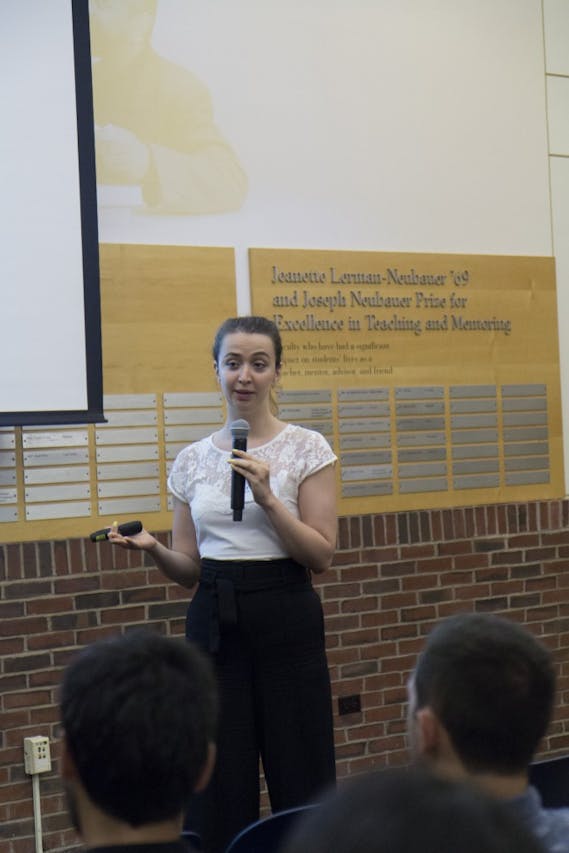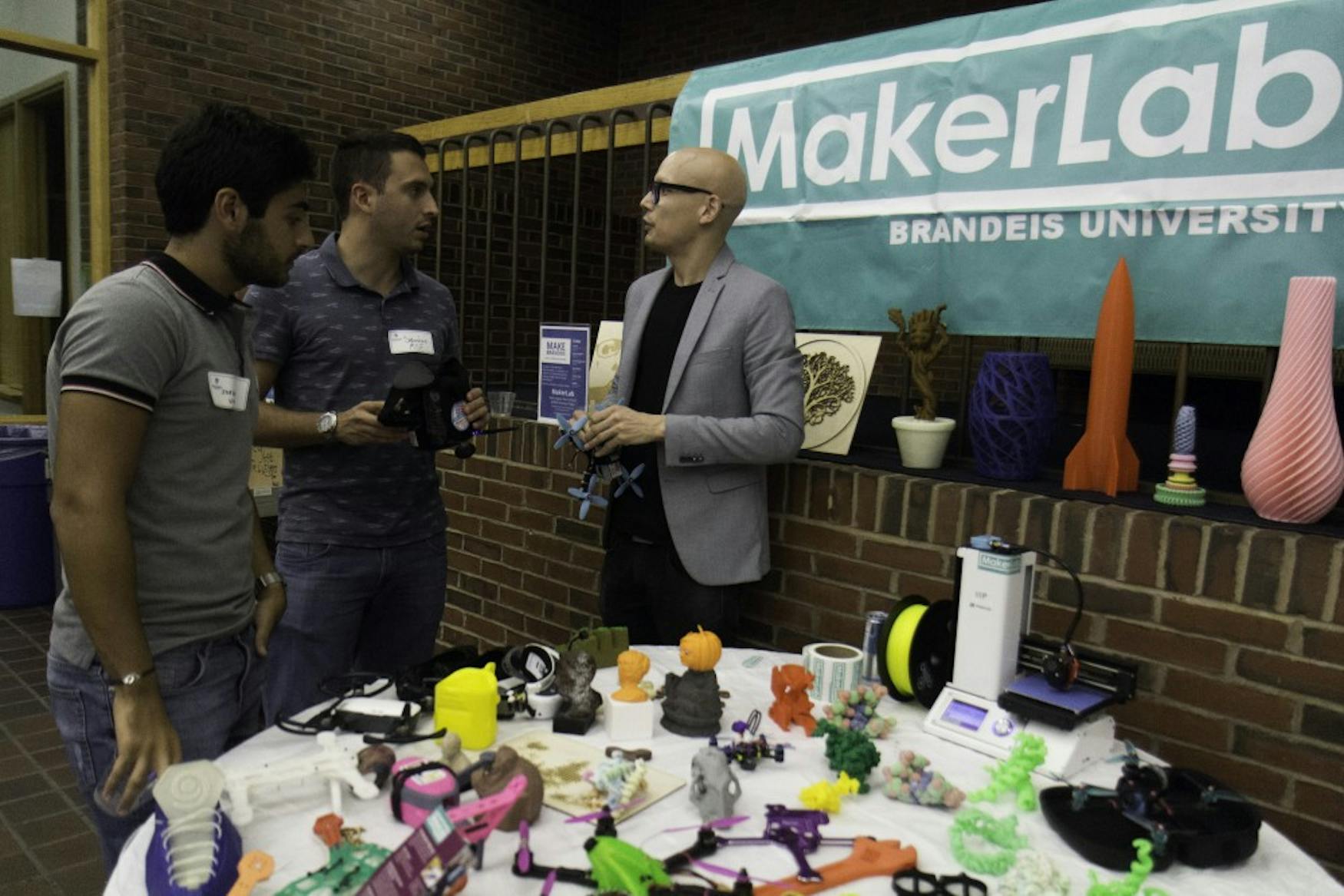What's Your Elevator Pitch?
Startup mixer kicks off this year's activities for the Brandeis Innovation Center
Last Thursday, Sept. 14th, Bozhanka Vitanova, the Program Director for Entrepreneurship and Innovation, opened up a startup mixer and pitch session to anyone at Brandeis interested in sharing their entrepreneurial ideas.
The Brandeis Innovation Center holds various events throughout the year that allow students to pitch their startup ideas to people outside the Brandeis community. The first event on Sept. 26 is the I-Corps Award Ceremony. This event is to recognize those who have completed projects through the National Science Foundation. On that day, attendees will have the opportunity to meet the winners and see the types of ideas that the Innovation Center has supported. The second event happening on Nov. 30 is the Innovation Showcase, which allows students to meet inventors on campus.
I-Corps is just one of the programs that the Innovation Center has to offer. Brandeis was recently named an I-Corps Site by the NSF, so along with about eighty universities nationwide Brandeis can award NSF funds to its students. By getting matched to business students and mentors and completing three training sessions in October, fifteen participants from the Brandeis community can join a team and receive financial support for their scientific and technological projects. Each team is given up to $1,000 in Customer Discovery Funding for company visits, conference fees and admission to industry events. All teams that successfully complete the program receive an additional $2,000 that goes into prototype development. These students are also eligible for up to $20,000 in funding from Brandeis’ Office of Technology Licensing.
Another program meant for non-Science, Technology, Engineering and Math majors is called SPARK. Similar to SPROUT funding, SPARK assigns participants a mentor and provides training during October. Participants have 30 days to complete various types of challenges that involve speaking to professional customers and completing exercises that are meant to assist in the process of building a business. Depending on how successful a participant is, they can compete for awards that will be given out at the Innovation Showcase, where they will then be eligible to apply for SPARK funding of up to $10,000 toward prototype development.
I-Corps and SPROUT are open to students, postdoctoral fellows, faculty and staff members, with mixed teams allowed. The mentors are Brandeis alumni who have successfully built their own businesses, as well as entrepreneurs in the Boston area. At the end of each program, participants will receive a digital badge recognizing their completed work. Additionally, these participants are allowed to apply for a spot in a pitch competition where a few selected teams will receive $10,000 each.

STUDENT INVENTORS: Leana Silverberg ’18 tells students that they will fail in the path to innovative success but must “keep on moving.”
One senior at Brandeis, Leana Silverberg ’18, is a part of the five-year Bachelor of Science/Masters of Science Biotechnology Program and completed SPARK as a freshman. Silverberg created a cell phone charger that was based on kinetic movement. Her idea led her to apply to SPARK, where she learned about marketing and patenting during a three-day bootcamp. Once she reached the final round, Silverberg presented her product to a board of judges who acknowledged the merits of her invention but withheld funding she had hoped to receive.
Disappointed, Silverberg decided to take a step back and evaluate her process. She went to the Innovation Center and realized that her product involved an extensive knowledge of physics (knowledge that she had not acquired in school). To improve her skills, Silverberg decided to take a break from her own project and work for other startups where she learned more about innovation and entrepreneurship.
Her involvement with SPARK and the Innovation Center led her to receive an invitation to the MassChallenge Boston Awards, a startup accelerator program which inspired her to apply as a guide in the Innovation Center. Her hard work paid off: Silverberg is now involved in consulting for the technology and science teams. She uses her own experiences to help participants take their ideas and launch them into MassChallenge.
To conclude Thursday’s mixer, participants pitched their startup ideas. Some ideas revolved around how situations in literature, art and movies should be linked to the news in order to explore human nature and solve pressing issues. Other ideas used algorithms to inform people with food sensitivities about the combinations of food triggering their symptoms. One participant even proposed optimizing a motorcycle used in Africa and Asia so that it would be able to ride in narrow spaces where automobiles could not go.
Hiroko Oji ’18 is a second year Master of Business Administration student at The Heller School, who co-founded PoPok, meaning “cloud” in Khmer. PoPok produces nutritional snacks shaped like clouds, which are then sold to school children in Cambodia. With over 30 percent of the children in Cambodia being underweight, PoPok’s products are made from locally sourced ingredients focused on nutrients promoted by the National Nutrition Guidelines for children. PoPok partners with local farmers, school teachers, non-governmental organizations and small shop owners to deliver products to the children at affordable prices. Oji is currently looking for anyone interested in nutrition and international development to join the team.
The Brandeis Innovation Center is open to anyone with an idea for a new business. The way Silverberg sees it, “The Innovation Center is a real, solid community. Everyone helps each other.” While many of the eager people in the room are a long way from building their own companies, she reminded the audience that, “You’re going to fail a lot of times, but you just have to keep on moving.”



Please note All comments are eligible for publication in The Justice.